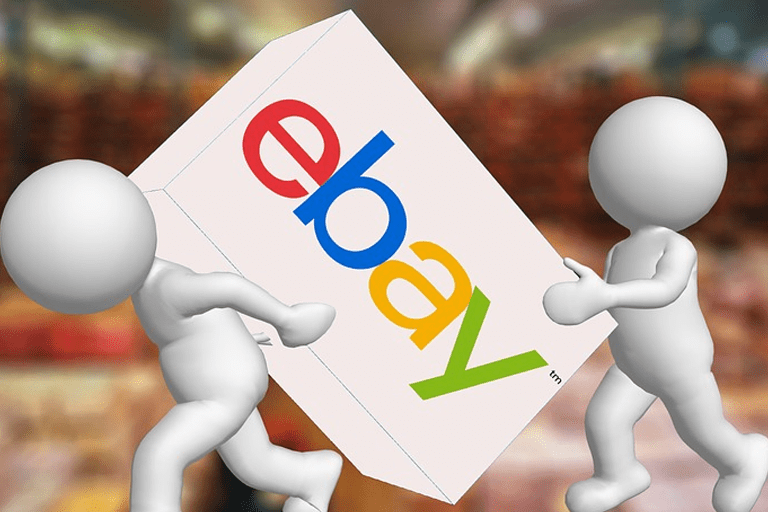EBay can be a powerful tool for generating passive income. Once you have sourced a product niche and established a strong channel the business can be operated with little direct involvement. Most sellers already doing business on eBay have undoubtedly thought of expanding their business internationally.
Factors such as language barriers, tax laws, custom duties and other uncertainties surrounding international business keep such thoughts from turning into reality. Sure, expanding your existing business into international markets isn’t something you should take lightly. But it also isn’t something as difficult as many believe it to be. Considering that a large chunk (around 60%) of eBay revenue comes from international markets, it’s no surprise that an increasing number of sellers are turning their dream of expansion into reality. Meanwhile, check out our post about the seven ways to automate the marketing of your business by clicking the link.
Failing to Plan is Planning to Fail
The most common fears associated with selling internationally include credit-card frauds, shipping delays and returns, but you have to deal with them in almost any online businesses. With the right strategy and some due diligence, you can minimize the chances of bad stuff happening to you. Planning is perhaps the most important part of expanding your business internationally. If you don’t understand your target audience and what they really want, it would become difficult for you to manage things later. Here are a few things that might help you determine if you should be thinking of expanding your business in non-U markets:
- Is your product unique and not widely available in the international markets you are targeting? Provided the product has demand (or able to generate demand), this is the arguably the most important factor that can make or break your dreams of doing business internationally
- Receiving product-related queries from other countries? There is a good chance that what you are selling is in demand somewhere else
- Slow or next-to-nothing business growth in the local market? Things don’t always remain the same, especially when a hundred sellers are also offering the same product
- Is there any competitive advantage/business incentive that differentiates you from the crowd? Could be anything, including price, quality, features and faster delivery
- Are you experiencing a steady growth in the local market? That’s contrary to what we have already discussed before, but in addition to slow growth, it’s also time to think global when things are going the right way.
If answer to most of these questions is yes, you need to give international businesses a serious thought.
Why Go Global with eBay?
The reasons are quite obvious. eBay’s Global Shipping Program exposes your business to over 60 million buyers. The best thing about selling internationally with eBay is that you don’t have to deal with most of the daunting tasks usually associated with doing business internationally. All you need to get started is to send your products to eBay’s domestic shipping center and the platform takes care of the rest (most of it), including custom processes and shipping. The benefits of expanding your business internationally through eBay include money back guarantee for lost/stolen items during international shipping, which also won’t affect the seller rating.
Free local shipping to the shipping center qualifies you for 5 star rating in shipping costs (viewable in the detailed seller rating). Another 5 stars for shipping time if you ship/handle the item within the same business day, deliver the item within 4 business days to the US shipping center and upload tracking info within a day of receiving payment. Any handling-related negative/neutral feedback will also be removed during international transit. So there you have it, eBay seemingly takes care of most of the things that hold people back from going global.
Requirements and Best Practices for Selling Internationally
You just need to make sure you meet the following requirements (a summary of the Global Shipping Program Guidelines)
- Above standard or higher seller rating
- Products should be located physically in the United States and must also be listed on eBay.com
- You cannot sell items specified as ineligible by eBay, including hazardous items
- PayPal is the acceptable payment method (a good thing when doing business internationally)
- The delivery address should not be a P.O box/FPO/APO address in most countries, but there are a few countries where you can also deliver to a P.O box address
- The package must adhere to the maximum weight and dimensions specified by eBay for different countries (varies between 66-150 lbs.)
- The sale price should not exceed the specified limits, $2,500 max for most countries (shipping and handling excluded)
- Standard eBay and PayPal fees apply such as insertion/listing, sale and PayPal cross-border payment transaction fees
- If your domestic return policy is different than the international one, add it to the listing
- Use eBay labels, if not, make sure to upload tracking information manually
- Listing should preferably include weight and dimensions of the package and country of origin/manufacturing for quicker customs clearance
- Whenever possible, all items should be shipped in one package, as a single order
- And most importantly, ship after receiving the payment confirmation
Restricted/Prohibited Categories and Items
You can view the comprehensive list of restricted categories and items at eBay Global Shipping Program page, but here are some for reference
Restricted categories
- Business and Industrial heavy equipment, attachments and websites
- Smart watches
- Virtual currency
- Storage and media accessories
- Motor parts and accessories
- Gift cards and coupons, prepaid gaming cards
- Fragrances
- Backyard poultry supplies
- Fresh-cut flowers and supplies
- Real estate
- Specialty services excluding hats, handbags and accessories, jewelry and some other items falling under custom clothing and jewelry
- Stamps
- Travel items excluding luggage and accessories, travel accessories and maps
- Wholesale items and bulk lots
Prohibited items (most of which are also prohibited locally) include obscene material, child pornography, hate propaganda, narcotics including controlled substances, any form of currency such as bonds, credit cards and certificates, any kind of weapon including knives, tobacco, medical materials and bio specimens, perishable items, animals and plants, COD shipments, precious metals, replicas, fine arts, lasers, nutritional supplements and printer toners
Common misconceptions
Everything might not turn out to be as planned in the beginning, but this shouldn’t hold you back from expanding your businesses internationally. It takes time and determination to achieve success and one should always be ready to learn new things and improve accordingly. Let’s have a look at the two common misconceptions surrounding international business:
Canada and UK are the best markets to start with
While that might be true for certain products that have high demand in these countries, UK and Canada aren’t necessarily the best countries to begin with. Sure, entering these markets is fairly easy and you don’t have to deal with many obstacles such as language barriers, but they might not be the most profitable. You can end up making a lot less because of higher tax rates, VAT etc. Demand and profit margin for your products might be much higher elsewhere in countries like Japan. That’s why proper planning is so important in this business an in-depth market analysis can provide you with a fair idea of where you should be focusing on.
The more markets you serve the better
That’s not recommended for sellers who are about to venture into international markets. Focusing on one or just a few markets provides you with the time and feedback you need to rethink you strategy and adjust accordingly. Expanding to more markets becomes easier when you know where you can earn more profit (and where a higher demand of your products exists).
Conclusion
There are many things that you’d have to figure out yourself when expanding your businesses to markets outside the US. It’s highly recommended to translate your listings into the local language. This helps buyers relate the products to themselves, build trust and create a sense of familiarity. Listings and product descriptions should be informative, yet interesting and target the audience at a personal level. For example, explain how features of a certain product benefit the users and how they can improve their lives instead of merely listing specifications. Communicate at an emotional level because humans make decisions based on emotions, not logic (exceptions are always there, but that’s how it mostly works). And if you want to learn how to run cross marketing for online businesses, visit the given link.



